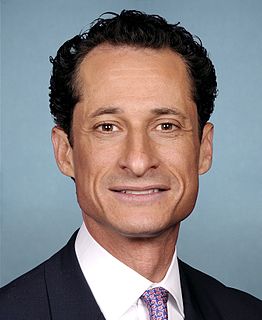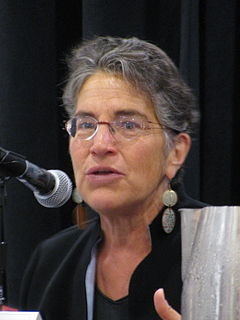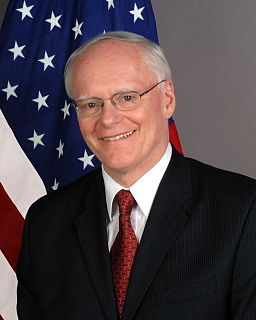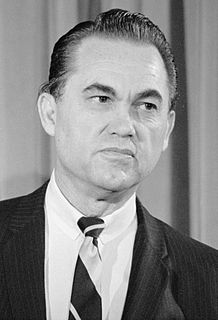A Quote by Anthony Weiner
Every dollar that we send in State Department aid or humanitarian aid that saves us from having to get involved with very expensive military actions is a good investment. And frankly, helping Israel fight terrorism in the Middle East is much cheaper than us fighting it here on our shores.
Related Quotes
Instead of ending U.S. military aid to the 23rd wealthiest country to use for its consistent violations of international law and human rights, we see the Obama administration escalating the annual amount of aid, so that Israel will now start each year with almost $4 billion, with $3.8 billion a year of military aid coming from our tax money to support its military, without any restrictions on how it makes - how it uses that money, what weapons in the U.S. it's able to buy.
The notion that aid can alleviate systemic poverty, and has done so, is a myth. Millions in Africa are poorer today because of aid; misery and poverty have not ended but increased. Aid has been, and continues to be, an unmitigated political, economic, and humanitarian disaster for most parts of the developing world.
Shaking up whole region means that Israel needs the US for its safety and military camps are "flourishing" everywhere in the Middle East. It has been said that Barack Obama is less interested in the Middle East. I don't think so. This mess has been created and maintained. Maybe the US is pretending to be less interested, however, it allows them to take their power back when it comes to security.
If you take all the food aid, America is by far the most generous country. If you take the direct aid, we're very generous. But when you add on our private contributions - see, our tax system encourages private citizens to donate to organisations that, for example, help the folks in Africa. And when you take the combined effort of US taxpayers' money plus US citizens' donations, we're very generous. And we'll do more.
Being reliant on legal aid is probably inconceivable to most of us. But this is no different from other branches of the welfare state established at the same time as our legal aid system - being diagnosed with a major illness and needing the NHS, or losing a job and needing the support of social security.
Moyo, a Zambia-born economist, asserts that aid is not only ineffective-it's harmful. Her argument packs a strong punch because she was born and raised in Africa. Moyo believes aid money promotes the corruption of governments and the dependence of citizens, and advocates that an investment approach will do more to help reduce poverty than aid ever could.
And we will pursue nations that provide aid or safe haven to terrorism. Every nation in every region now has a decision to make: Either you are with us or you are with the terrorists. From this day forward, any nation that continues to harbor or support terrorism will be regarded by the United States as a hostile regime.
So it can be for us as we allow the stirrings of hope to motivate us to action; and then as we act so that our hope becomes faith, that faith gives us power and enthusiasm for the principles of the gospel, which leads us to further action. Soon, we are lifted out of the state of hopelessness, and we begin to aid those around us by working to make the world a better place, rather than languishing in misery watching the world go by without us.
Optimism is in short supply in the Middle East, but what I do think is the administration needs to step up its act. We should use military strikes against ISIS when they threaten the Shia areas or Baghdad. We need to accelerate very rapidly, and we have ways to do it, aid to the Syrians, and we need to be more active, with results, not simply inputs. That is absolutely important right now, because people are questioning our will, not our capabilities.
It seems that other parts of the world ought to be concerned about what we think of them instead of what they think of us. After all, we're feeding most of them, and whenever they start rejecting 25 cents of each dollar of foreign aid money that we send to them, then I'll be concerned about their attitude toward us.

































